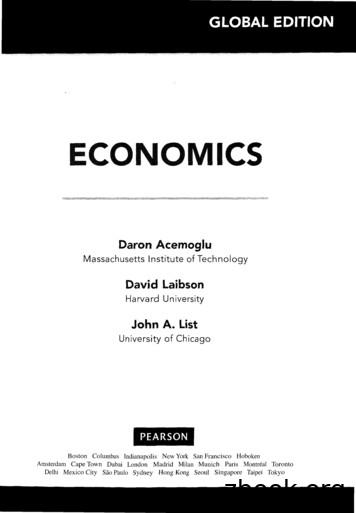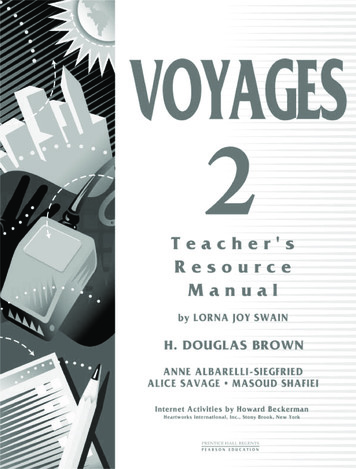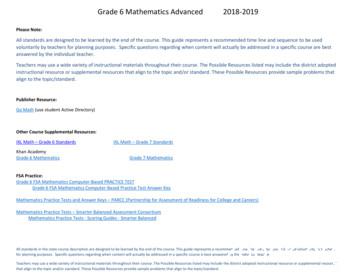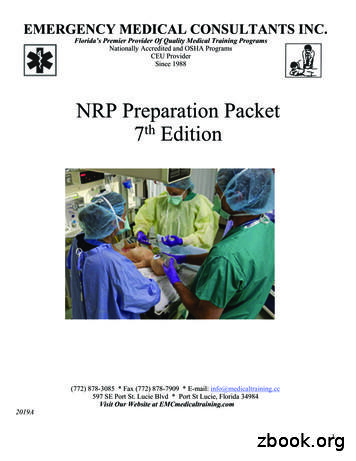Lesson 1 Business Economics Meaning Nature Scope And-PDF Free Download
4 Step Phonics Quiz Scores Step 1 Step 2 Step 3 Step 4 Lesson 1 Lesson 2 Lesson 3 Lesson 4 Lesson 5 Lesson 6 Lesson 7 Lesson 8 Lesson 9 Lesson 10 Lesson 11 Lesson 12 Lesson 13 Lesson 14 Lesson 15 . Zoo zoo Zoo zoo Yoyo yoyo Yoyo yoyo You you You you
Std. 12th Economics Smart Notes, Commerce and Arts (MH Board) Author: Target Publications Subject: Economics Keywords: economics notes class 12, 12th commerce, 12th economics book , 12th commerce books, class 12 economics book, maharashtra state board books for 12th, smart notes, 12th std economics book , 12th economics book maharashtra board, 12th economics guide , maharashtra hsc board .
International Finance 14. Development Policy 15. Institutional Economics 16. Financial Markets 17. Managerial Economics. 13 18. Political Economy 19. Industrial Economics 20. Transport Economics 21. Health Economics 22. Experimental and Behavioral Economics 23. Urban Economics 24. Regional Economics 25. Poverty and Income Distribution
Participant's Workbook Financial Management for Managers Institute of Child Nutrition iii Table of Contents Introduction Intro—1 Lesson 1: Financial Management Lesson 1—1 Lesson 2: Production Records Lesson 2—1 Lesson 3: Forecasting Lesson 3—1 Lesson 4: Menu Item Costs Lesson 4—1 Lesson 5: Product Screening Lesson 5—1 Lesson 6: Inventory Control Lesson 6—1
Lesson 41 Day 1 - Draft LESSON 42 - DESCRIPTIVE PARAGRAPH Lesson 42 Day 1 - Revise Lesson 42 Day 1 - Final Draft Lesson 42 - Extra Practice LESSON 43 - EXPOSITORY PARAGRAPH Lesson 43 Day 1 - Brainstorm Lesson 43 Day 1 - Organize Lesson 43 Day 1 - Draft LESSON 44 - EXPOSITORY PARAGRAPH Lesson 44 Day 1 - Revise
ECONOMICS 40 Chapter 1: The Principles and Practica of Economics 40 1.1 The Scope of Economics 41 Economic Agents and Economic Resources 41 Definition of Economics 42 Positive Economics and Normative Economics 43 Microeconomics and Macroeconomics 44 1.2 Three Principles of Economics
Behavioral Economics Experimental Economics Macroeconomics and Public Sector Economics Monetary Policy Fiscal Policy Cost-Benefit Analysis Economics of Regulations and Competitive Economy Labour and Population Labour Economics Population Economics Human Resource Development Islamic Economics Islamic Banking: Theory and Practice
1. Essentials of Business Economics- D N Dwivedi, Vikas Publications. 2. Managerial Economics - Dom inick Sal watore . 3. Managerial Economics - Gupta and Mote 4. Economics - Samuel son & N or dhaus 5. Managerial Economics by Peterson and Lewis 6. Micro Economics – Dominick Salvatore 7. Macro Economics –
iii UNIT 1 Lesson 1 I’m studying in California. 1 Lesson 2 Do you have anything to declare? 5 Lesson 3 From One Culture to Another 8 UNIT 2 Lesson 1 You changed, didn’t you? 13 Lesson 2 Do you remember . . . ? 17 Lesson 3 Women’s Work 20 UNIT 3 Lesson 1 We could have an international fall festival! 25 Lesson 2 You are cordially invited. 29 Lesson 3 Fall Foods 32 UNIT 4 Lesson 1 Excuses .
For Children 4-7 Years Old Series 6 Old Testament: Genesis From Creation to the Patriarchs Lesson 1 Creation Lesson 2 Adam and Eve Lesson 3 Cain and Abel Lesson 4 Noah and the Ark Lesson 5 Abraham’s Call Lesson 6 Isaac – The Son of Promise Lesson 7 Isaac and Rebekah Lesson 8 Jacob and Esau Lesson 9 Jacob Marries Rachel Lesson 10 Jacob is .
Contents Preface 4 Lesson 1 What Is Wisdom? 14 Lesson 2 Wisdom and Foolishness 27 Lesson 3 The Example of Wise Men 40 Lesson 4 Our Home Life 55 Lesson 5 Honoring Our Parents 71 Lesson 6 Freedom and Responsibility 85 Lesson 7 How Attitudes Affect Actions 102 Lesson 8 Right Attitudes About Myself 117 Lesson 9 Good Friends and Bad Friends 130 Lesson 10 Choosing the Right Friends 140
Managerial Economics way, managerial economics may be considered as economics applied to “problems of choice’’ or alternatives and allocation of scarce resources by the firms. 1.2 MEANING OF MANAGERIAL ECONOMICS Managerial Economics is a discipline that combines e
excess returns over the risk-free rate of each portfolio, and the excess returns of the long- . Journal of Financial Economics, Journal of Financial Markets Journal of Financial Economics. Journal of Financial Economics. Journal of Financial Economics Journal of Financial Economics Journal of Financial Economics Journal of Financial Economics .
Labor Economics, Public Economics, Applied Econometrics, and Economics of Education Tia Hilmer, Professor O ce: NH-317, Email: chilmer@sdsu.edu Econometrics, Natural Resources, Environmental Economics . Mathematical Economics (3) Prerequisite: Mathematics 124 or 150. Recommended: Economics 320 or 321. .
Managerial Economics Klein Mathematical Methods for Economics Krugman/Obstfeld/Melitz International Economics: Theory & Policy* Laidler The Demand for Money Lynn Economic Development: Theory and Practice for a Divided World Miller Economics Today* Miller/Benjamin The Economics of Macro Issues Miller/Benjamin/North The Economics of Public Issues .
Lesson Plan). The lesson plan (sometimes also called lesson note) is included both Type A and Type B. The format of the lesson plan is the same as the standard lesson plan that Ghana Education Service (GES) provides. The sample lesson plans of Type A also contain “lesson plan with teaching hints” on the next page of the standard lesson plan.
Lesson 3.3 –Comparing and Ordering Rational Numbers Lesson 3.1 – Khan Academy Lesson 3.2 –Khan Academy Lesson 3.3 – Khan Academy 4 8/27 – 8/31 Module 1 and 3 Test Lesson 9.1 –Exponents Lesson 9.3 – Order of Operations Lesson 17.1 and 17.2—Adding Integers Lesson 9.1 – Khan Academy Lesson 9.3 – Khan Academy
Lesson 5-1 Writing Fractions as Decimals Lesson 5-2 Rational Numbers Lesson 5-3 Multiplying Rational Numbers Lesson 5-4 Dividing Rational Numbers Lesson 5-5 Adding and Subtracting Like Fractions Lesson 5-6 Least Common Multiple Lesson 5-7 Adding and Subtracting Unlike Fractions Lesson 5-8 Solving Equations with Rational Numbers
Lesson 13 Day 2 – Linking Verbs Lesson 13 Day 3 – Action Verbs and Linking Verbs LESSON 14: HELPING VERBS Lesson 14 Day 1 – Helping Verbs Lesson 14 Day 2 – Helping Verbs *Assessment 5 (Lesson 12-14) LESSON 15: ADVERBS THAT MODIFY VERBS Lesson 15 Day 1 – Adverbs That Modify Verbs Lesson 15
7 NRP Provider Course Overview Lesson 1: Foundation of Neonatal Lesson 2: Preparing for Resuscitation Lesson 3: Initial Steps of Newborn Care Lesson 4: Positive Pressure Ventilation Lesson 5: Alternative Airways: Endotracheal tubes and Laryngeal Masks Lesson 6: Chest Compressions Lesson 7: Medications Lesson 8: Post Resuscitation Care Lesson 9: Resuscitation Stabilization of Babies Born
Lesson 1–2. Lesson 3–6. Lesson 3-6 Lesson 3-6. Lesson 7-8. Lesson Lesson 7-8 Lesson . 7-10 Lesson . 7-10 . statistical enquiry cycle: posing and answering questions gatheri
Lesson 2 - Ephesians 1:1-14 9 Lesson 8 - Ephesians 5:1-14 49 Lesson 3 - Ephesians 1:15-23 & 3:14-21 15 Lesson 9 - Ephesians 5:15-6:9 55 Lesson 4 - Ephesians 2:1-10 23 Lesson 10 - Ephesians 6:10-24 63 Lesson 5 - Ephesians 2:11-3:13 29 Lesson 11 - Ephesians Synthesis 69 Lesson 6 - Ephesians 4:1-16 37 Appendix - Bible Study Skills 75 Table of .
CONTENTS iii PAGE L ESSONS 1 LESSON ONE: Ezekiel 1–3 11 LESSON TWO: Ezekiel 4–7 21 LESSON THREE: Ezekiel 8–11 39 LESSON FOUR: Ezekiel 12–14 51 LESSON FIVE: Ezekiel 15–16 63 LESSON SIX: Ezekiel 17–19 69 LESSON SEVEN: Ezekiel 20–21 77 LESSON EIGHT: Ezekiel 22–24 87 LESSON NINE: Ezekiel
ENGLISH I TEXTBOOK: - MASTERING GRAMMAR PUBLISHER:-CORDOVA PUBLICATION FIRST SEMESTER EXAMINATION:- LESSON 1 TO 16 Lesson 1: Alphabetical order Lesson 2: The Sentence Lesson 3: Subject and Predicate Lesson 4: Kinds of sentences Lesson 5: Interrogative sentences Lesson 6: Negative sentences Lesson 7: Nouns Lesson 8: Kinds of Nouns
A SERIES OF LESSONS IN RAJA YOGA LESSON I. The "I" LESSON II. The Ego's Mental Tools LESSON III. The Expansion of the Self LESSON IV. Mental Control LESSON V. The Cultivation of Attention LESSON VI. Cultivation of Perception LESSON VII. The Unfoldment of Consciousness LESSON VIII. The Highlands and Lowlands of Mind LESSON IX. The Mental Planes
Lesson 1 - Fruits and Vegetables at the Farmers Market Lesson 2 - Storing Fruits and Vegetables Lesson 3 - Just Say Yes to MyPlate Lesson 4 - Just Say Yes to Food Safety! Lesson 5 - Stretching Food Dollars Lesson 6 - Healthy Portion Sizes Lesson 7 - Fiber: Are You Eating Enough? Lesson 8 - Healthy Beverages Lesson 9 - Beans .
1; The Human Digestive System: Lesson 2; Functions of the Blood: Lesson 3; Human Circulation and.respiration: Lesson 4; Reproduction of a Single Cell: Lesson 5; Reproduction by Male and Female cells: Lesson 6; The Human Reproductive System: Lesson 7; Genetics and Heredity: Lesson 8; The Nervous System: Lesson 9; The Glandular System: Lesson 10 .
International Economics: Theory & Policy* Laidler The Demand for Money Lynn Economic Development: Theory and Practice for a Divided World Miller Economics Today* Miller/Benjamin The Economics of Macro Issues Miller/Benjamin/North The Economics of Public Issues Mishkin The Economics of Money, Banking, and Financial Markets* The Economics of .
o Lesson 5: Film and Television Analysis o Lesson 6: Art Analysis o Lesson 7: Annotated Bibliographies o Lesson 8: Literature Reviews o Lesson 9: Reflections o Lesson 10: Scientific or Technical Reports o Lesson 11: Proposals o Lesson 12: Abstracts Section 3: Business Writi
Business Economics, also called Managerial Economics, is the application of economic theory and methodology to business. Business involves decision-making. Decision making means the
Business Statistics 45 Computer Information Technology 50 Economics Economics Principles 51 Labor Economics 64 Macroeconomics 65 . Business & Economics 6 ACCOUNTING Accounting Data Analytics Data Analytics for Accounting Vernon Richardson, Katie L Terrell, Ryan A Teeter Edition: 2
It is the opposite of literal meaning. Abcarican (1984) says “when the speakerspeaks something like words or sentences, which implies the different meaning from its really mean, that is the time as non- literal meaning”.In additional the words orsentences which are spoken by the speaker have hidden meaning besides the lexical meaning.
2. Dowling E.T, Introduction to Mathematical Economics, 2nd Edition, Schaum’s Series, McGraw-Hill, New York, 2003(E TD) 3. R.G.D Allen, Mathematical Economics 4. Mehta and Madnani -Mathematics for Economics 5. Joshi and Agarwal-Mathematics for Economics 6. Taro Yamane-Mathematics for Economics 7. Damodar N.Gujarati, Basic Econometrics, McGraw .
Economics. Give two examples for each. Scoring Indicators 1. Micro economics which is the study of individual units is helpful in analysing a micro economy, where as macro economics is helpful in understanding the working of macro economy. 2) Micro economics- any two examples. Macro economics
Normative economics and Positive Economics: Normative economics refers to value judgments, e.g. what “ought” to be the goals, of public policy. Normative statements cannot be tested. Positive economics, by contrast, is the analysis of facts and behavior in an economy or
A] SYBA – Economics Special Students B] TYBA - Economics Special Students 4. Google Classroom A] SYBA – Economics Special Students B] TYBA - Economics Special Students 5. Personal face to face contact A] SYBA – Economics Special Students B] TYBA - Economics Special Students Dr. Sunil P. Ugale [Men
economics, the economics of technological change, population, environmental and resource economics, the theory of games, the economics of undernutrition, and the economics of social capital. In 2019, he was commissioned by the UK Treasury to lead a global independent review on the economics of biodiversity. This important work is described
M.L. Jhingan Chandar K. Sharma 2nd Edition Environmental Economics Environmental Economics T. Eugine M.L. Jhingan and C.K. Sharma The book deals with the concepts, theories and problems of environmental economics and management in a simple and lucid manner. CONTENTS : UNIT I : Basic Concepts of Environmental Economics
economics and other majors as a proxy for the treatment effect of majoring in economics. The specific case we analyze is the economics department at the University of California, Santa Cruz (UCSC). UCSC Economics imposed a grade point average (GPA) restriction policy in 2008: students with a GPA below 2.8 in Economics 1
havioral economics is a form of economics, and our goal is to strengthen the predictive and analytic power of law and economics, not to undermine it. Behavioral economics does not suggest that behavior is random or impossi-ble to predict; rather it suggests, with economics, that behavior is systematic and can be modeled.







































